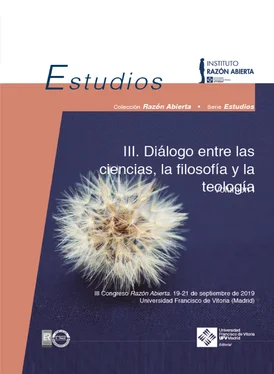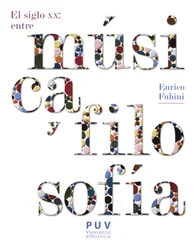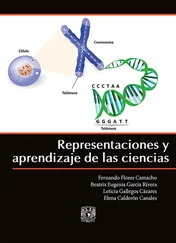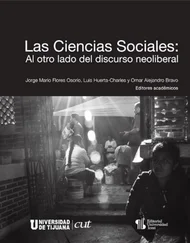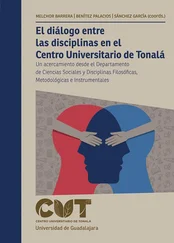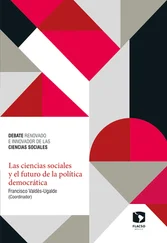María Lacalle - III Diálogo entre las ciencias, la filosofía y la teología. Volumen I
Здесь есть возможность читать онлайн «María Lacalle - III Diálogo entre las ciencias, la filosofía y la teología. Volumen I» — ознакомительный отрывок электронной книги совершенно бесплатно, а после прочтения отрывка купить полную версию. В некоторых случаях можно слушать аудио, скачать через торрент в формате fb2 и присутствует краткое содержание. Жанр: unrecognised, на испанском языке. Описание произведения, (предисловие) а так же отзывы посетителей доступны на портале библиотеки ЛибКат.
- Название:III Diálogo entre las ciencias, la filosofía y la teología. Volumen I
- Автор:
- Жанр:
- Год:неизвестен
- ISBN:нет данных
- Рейтинг книги:5 / 5. Голосов: 1
-
Избранное:Добавить в избранное
- Отзывы:
-
Ваша оценка:
- 100
- 1
- 2
- 3
- 4
- 5
III Diálogo entre las ciencias, la filosofía y la teología. Volumen I: краткое содержание, описание и аннотация
Предлагаем к чтению аннотацию, описание, краткое содержание или предисловие (зависит от того, что написал сам автор книги «III Diálogo entre las ciencias, la filosofía y la teología. Volumen I»). Если вы не нашли необходимую информацию о книге — напишите в комментариях, мы постараемся отыскать её.
III Diálogo entre las ciencias, la filosofía y la teología. Volumen I — читать онлайн ознакомительный отрывок
Ниже представлен текст книги, разбитый по страницам. Система сохранения места последней прочитанной страницы, позволяет с удобством читать онлайн бесплатно книгу «III Diálogo entre las ciencias, la filosofía y la teología. Volumen I», без необходимости каждый раз заново искать на чём Вы остановились. Поставьте закладку, и сможете в любой момент перейти на страницу, на которой закончили чтение.
Интервал:
Закладка:
That is the aim here. This exercise will in turn have numerous implications for the concerns raised by Monsignor Lombardi, Pope Benedict, and many others, about human dignity, meaning, values, and purpose in the circumstances in which we find ourselves. A major reason for this is because naturalism, which derives its ideological power as a metaphysics from the explanatory and practical success of the natural sciences, tends to go together with constructivism in the humanities: the idea that all meanings, values, priorities, and norms, including morality, are constructed (that is, invented) by human beings. This is precisely because, in the words of the sociologist Christian Smith, in the naturalist universe «[t]here is no inherent, ultimate meaning or purpose» and so «[a]ny meaning or purpose that exists for humans in a naturalistic universe is constructed by and for humans themselves.» 5 If there is no intrinsic meaning, purpose, or value in the natural world per se , of which we are a part as simply another mammalian species that happened randomly to evolve through processes of random genetic mutation and natural selection, then all human meanings and values can only be constructed; none can be «discovered,» because there are none to be found. Human cultural variety across space and time, as studied by anthropologists and historians, at first sight seems to offer ample corroboration of this claim. Combine this constructivist view with a political commitment to equality and individual self-determination and the link to moral and value relativism is readily apparent. As a corollary of metaphysical naturalism, constructivism therefore readily goes hand-in-hand with the liberal individualism championed by many political theorists from John Locke to John Rawls, and the conviction that the purpose of politics ought to be the maximal extension of individual rights about what to believe, how to live, and what to care about – everyone ought to be able to construct their own meanings and live as they please, within humanly constructed laws that permit everyone else to do likewise. 6 These brief remarks only hint at the ways in which naturalist assumptions in the university have widely ramifying implications that also affect the ways in which humanistic scholars and social scientists do their work. Everything is connected.
The plausibility of naturalism as a comprehensive worldview relies ultimately on the nested dependence of all the other disciplines upon physics, within a temporal scheme that stretches from the present back to the beginning of the universe. This was implicit in the example about Bach’s musical compositions. In a naturalist scheme, the vast majority of humanistic scholars, in all disciplines, study the myriad meaning-laden constructions of one subspecies, Homo sapiens sapiens , from the last 3,000 or so years. Materialist neuroscientists seek to explain every human experience behind all those constructions not simply as requiring but as reducible to neurophysical processes in human brains, processes shared with other species in their respective brains and extending millions of years back into the evolutionary past. A similar perspective is shared by evolutionary psychologists, who apply a similarly reductionist approach to the human behaviors studied by humanistic scholars as intentional actions, which not only (obviously) presuppose the reality of human genes and survival-oriented behaviors by human beings who survived (a tautology), but are ultimately determined by them. Evolutionary theory is so important among the disciplines as a whole, and neo-Darwinian ideology is so seemingly plausible to the unwary, because of the way in which it connects and purports to explain the entirety of the human world not only as continuous with the rest of human life, but much more fundamentally and ambitiously, as continuous with the non-living, strictly mechanical processes of chemistry and physics. In the words of one of the most zealous neo-Darwinian evangelists, Daniel Dennett, «the idea of evolution by natural selection unifies the realm of life, meaning, and purpose with the realms of space and time, cause and effect, mechanism and physical law.» 7 And by «unifies,» he means reduces to ; hence his delight in the alleged «universal acid» of what he calls «Darwin’s dangerous idea.» 8 Darwinian evolutionary theory extends into the domain of all living things a mechanistic materialism that followed from the seventeenth-century rejection of Aristotelianism characteristic of thinkers such as Galileo, Bacon, Descartes, and Newton, with which it shares the repudiation of any teleology or intrinsic meaning in the natural world. 9
There is no question that because of the staggering advances in twentieth-century physics – particle physics, astrophysics, cosmology – we know more about the history, character, and makeup of our universe at the most elemental levels now than ever before, stretching back to the Big Bang some 13.7 billion years ago. Those who familiarize themselves with what we now know about our universe can hardly fail to be astounded not only by the time scales, the distances, and the mathematically articulated intricacies of what astronomers and physicists have discovered, but also by how bizarre and mysterious it all is. To give only one example: only a small portion – about 5 percent – of what falls within the purview of physics consists of the protons, neutrons, and electrons that comprise the elements and compounds studied in chemistry, and which, diversely combined in all their dizzying variety, make up the full range of life forms that have ever existed on Earth, as studied in the life sciences (the remaining 95 percent of the universe consists of either dark matter or dark energy, about which physicists understand very little). 10 Nevertheless, there is a strong sense in which, for a naturalist, materialist worldview, among the disciplines physics is and has to be «first philosophy.» If naturalism is true, or plausible, ultimately it is physics that will have to explain how this is so – indeed, how it is possible.
It turns out that it cannot, and this not merely because the answer has not yet been discovered, or because physics has not yet made sufficient progress, but rather because it is a category mistake to think that it could. This is the most fundamental objection to materialist naturalism as a comprehensive account of reality, a further discussion of which follows below. It should first be noted, however, that the conceptual and logical irrationalism of metaphysical naturalism is not its only problem; numerous scholars have pointed out other manifold difficulties. Nor should this be surprising insofar as the insufficiencies of dubious ideas usually disclose themselves in more than one way.
The first problem to be noted might not be insuperable for a scientistic reductionist fervently devoted to naturalism, but it would doubtless unsettle most human beings from all cultures, and rightly so. It is simply that if naturalism is true, there is no reason to think that there might be a basis for any objective ethical norms at all. There are only human constructions of morality, which shift according to cultural differences, historical processes, and individual preferences, subjectively overlaid by Homo sapiens sapiens on the purposeless substratum of matter-energy. There can be no question of anything actually being good or evil, right or wrong, just or unjust, because there are in reality no values, purposes, or meaning. To quote Christian Smith once again: «Matter and energy are not a moral source. They just exist and do what they do. The natural processes that govern the operations of the cosmos are not moral sources. They are simply the givens of physics and mathematics, elemental facts of natural reality lacking meaning or purpose or normativity... The evolutionary development of substances and life forms is not a moral source. They also just happen as they happen.» 11 Nor is it apparent how any theories of emergence, which have been important in the natural and social sciences in recent decades and seek to explain how more complex realities and qualitatively different phenomena can arise from simpler constituent realities, could bridge the gulf between the complete absence and the objective presence of ethical norms. 12 If naturalism is the truth about reality, then correlatively and obviously there could be no actual basis whatsoever for human rights, for example, nor any imperative to care about anyone or anything, or to act in certain ways rather than others; nor could there be any basis besides constructed preferences to condemn any behaviors, no matter how seemingly horrific from a conventional ethical perspective, including genocide, sex trafficking, or torture.
Читать дальшеИнтервал:
Закладка:
Похожие книги на «III Diálogo entre las ciencias, la filosofía y la teología. Volumen I»
Представляем Вашему вниманию похожие книги на «III Diálogo entre las ciencias, la filosofía y la teología. Volumen I» списком для выбора. Мы отобрали схожую по названию и смыслу литературу в надежде предоставить читателям больше вариантов отыскать новые, интересные, ещё непрочитанные произведения.
Обсуждение, отзывы о книге «III Diálogo entre las ciencias, la filosofía y la teología. Volumen I» и просто собственные мнения читателей. Оставьте ваши комментарии, напишите, что Вы думаете о произведении, его смысле или главных героях. Укажите что конкретно понравилось, а что нет, и почему Вы так считаете.
